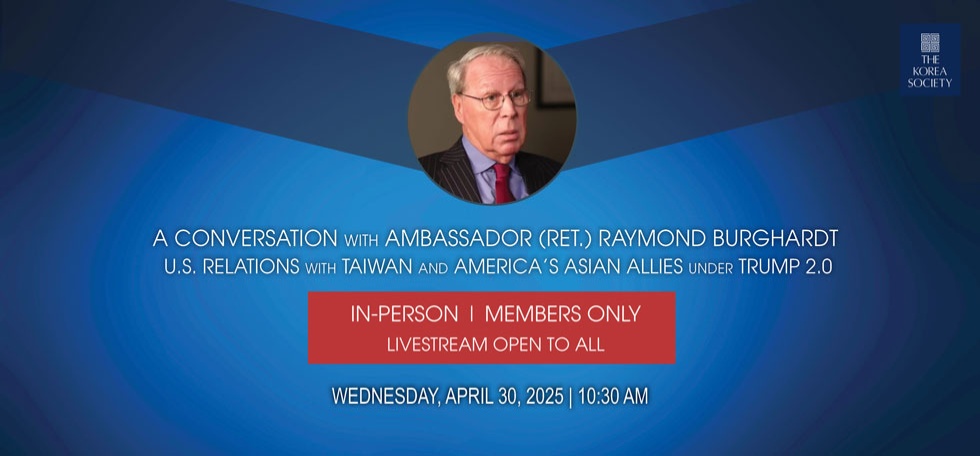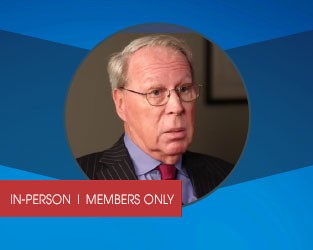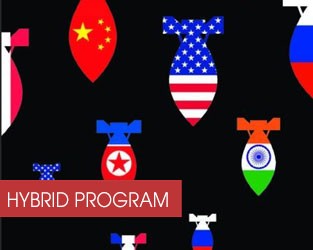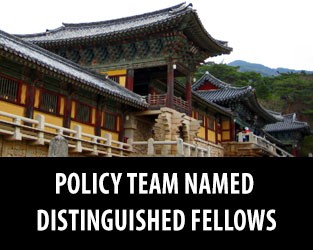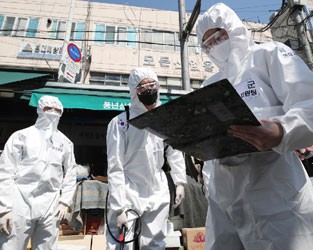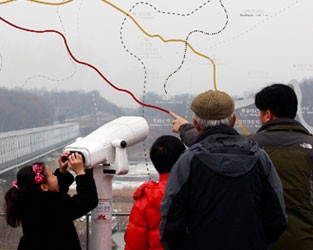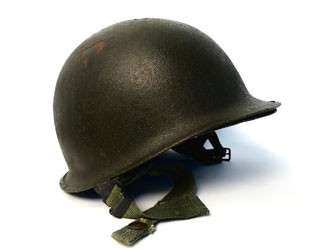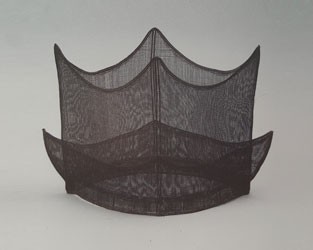Legacies in Korea-U.S. Relations:
A Salute to Dr. David Kim, Holt International
September 13, 2012
STEPHEN NOERPER:
Dr. David Kim. A remarkable book. A remarkable life, indeed. A unique service to thousands upon thousands upon thousands of children, and to the greater Korea-U.S. relationship. Clearly from the book and from your life, you're a man of faith and a man of action. A master of bureaucratic hurdles (which we're hoping you'll tell us a bit about tonight). A humanitarian. A man of humor. A man of healing. You have saved so many and you've lost a few. You have an indomitable spirit. Clearly from the record of your voyages; you're a fearless flyer, the driver of Korea's first Volkswagen ambulance, and the only man I've met who has consumed twelve banana splits in twenty-four hours. [Laughter] You describe yourself as a "D.D.," a doctor of divinity and diapers.
Welcome, Dr. Kim. Welcome to The Korea Society. Welcome to the kickoff of our Fall, 2012 program series. We would like at this time to also welcome your wife Nancy, the Holt delegation, and all of the families and adoptees in the audience. Tonight we honor your fifty-five years of service on this, our 55th anniversary year. It is very special for us, here at The Korea Society, to have you as the first guest of our Legacy series.
We'll return to many of the points from this introduction during the course of our hour-long conversation. I wish to begin with a question about your childhood years. You write to some extent in the first one hundred pages of your book, Who Will Answer, of how you dealt with colonial occupation. How did you maintain your sense of identity during this time? How did you maintain your spirit in the face of being a young man growing up under so much oppression?
DAVID KIM:
Thank you, Stephen, for your introduction. I greatly appreciate the accolades, but I haven't done that much. The work I did was proportionately small. I was so fortunate to meet the wonderful American gentleman Harry Holt. It was with him and through him I was able to accomplish what I did, and most of the credit belongs to him.
I have had a very unique and complex life. I was born into a wonderful Christian family. My grandfather became a Buddhist monk. He was sent to a temple when his father died (my grandmother being unable to care for six children). He was the youngest. There, Grandfather was cared for and educated by a monks, and he trained to become a monk himself.
While completing his training, Grandfather retreated to a deep mountain area to meditate and find enlightenment in the teachings of Buddha, and that experience forever changed his life. He found a new God. This was a God of which he had never spoken—Hananim. He called out to Hananim, pleading to be saved. He then questioned himself. What is this? Why has this come to be at this stage of my life?
He then reached out to local Christians and Canadian Presbyterian missionaries in the area. Grandfather became a very devout Christian, propagating Christianity in the northern part of Korea, southern Northeast China, Vladivostok, and the surrounding area. He served as a missionary in both North Korea and the southern part of Manchuria. In that role, he founded more thank 100 churches.
After many years travelling, he met a lovely woman, fell in love, married, and had seven children—three sons and four daughters. He steered all of his children towards doing God's work. My father became a Presbyterian minister. My oldest aunt was trained in Bible school to work with pastors and became a "Bible Woman." It was into this religious, loving environment that I was born.
During my early childhood, Manchuria was occupied by the Japanese. Everything we were taught was Japanese. We had to speak Japanese. We were forced to use Japanese names and practice Shinto. We were required to bow down to a Shinto shrine every day. The principal of our school gave lectures every morning about Japanese patriotism. Pictures of the sunken battleships at Pearl Harbor hung in school hallways, and we were required to bow in front of those pictures every morning. It was a very intense education in all things Japanese.
We were not addressed by the surname of "Kim." We were stripped of our Korean identity while living under Japanese occupation. We were almost never together. My uncles and aunts went to Japan to study, and we only saw them during summer vacation. Because my grandfather worked with Canadian missionaries, we were always under surveillance by the Japanese military police who thought we were spies. My uncles had to leave Tokyo, going into hiding in Manchuria.
Once the war with the Japanese ended, the Russians arrived, bringing with them a different type of oppression and yet another nightmare. My family had many ups and downs during these years, and we faced a lot of hardship. I believe my patience and desire to persevere were developed during these years, and these many difficulties taught us how to survive, regardless of the conditions around us.
STEPHEN NOERPER:
Remarkable. One of the incredible anecdotes you tell in your book is that your grandfather very nobly underwent persecution and torture. A list of names he was protecting was hidden behind your infant father while being carried on the back of your mother.
The separation from your family continued as you moved from Japanese domination to Russian domination to domination by the Chinese People's Liberation Army. You then made your way into North Korea, looking forward to a time of unity with your family; yet life only became harder with the war. What was it like to have to move south without your family?
DAVID KIM:
For thirty-six years we lived under Japanese occupation. Everyone anxiously awaited the day when liberation and independence would come to our country. The day of liberation did come and the war did end, but Korean independence never came to fruition.
We believed that once Japan was defeated, China would become unified under Chung Kai-Shek. Koreans liked him at that time, knowing nothing about the government corruption during his regime. He had, at least, fought against the Japanese, and we believed he would unify the country. Unfortunately, Mao Tse-tung and his followers came to the area, immediately gained control and began to persecute our people.
Mao's government persecuted three classes of people. First, there were those who collaborated with the Japanese government. These included government workers, the police, the military, and high-ranking government officials. Wealthy people were the next class to be persecuted. The Mao regime's interpretation of wealth was very simple—you could only become rich by exploiting those who didn't have anything, and all of your belongings had to be returned to the people. The third class to be persecuted was the intellectuals and people who did not believe in Communism.
I remember the first time I witnessed Mao's "people's trials." These trials, of course, were kangaroo courts. A person was brought onto a stage at the high school baseball stadium and the list of crimes they had allegedly committed was read aloud. The "criminal" was then stoned to death along the riverbank.
These courts would take place on Sunday. People were terrified, but felt forced to attend; knowing that if they didn't, they'd be branded as sympathizers. My dad was very upset with me when I skipped church one Sunday to observe one of these trials. I remember him shaking his head after learning about it. I think he suspected his days were numbered, and that turned out to be true. He was put on trial as an intellectual—the first minister to ever be charged.
My father was lucky that day. After someone waved their fist in the air demanding my father's execution, a Communist leader from that area spoke on my dad's behalf. They knew about my grandfather's background and his work resisting Japanese oppression. Grandfather had participated in the Korean independence movement as treasurer of an organization called Kukminho. He'd collect contributions, and then give money to independence movement workers coming from Korea—to send them to Russia or to China.
So, my father was propagating Christianity, going around from village to village. He met a lot of people who wanted to do something similar. He was happy to do it. Fortunately, he was released at his trial. He immediately took me backstage and asked that the two of us be allowed to leave the country immediately. We left my siblings and my mother behind, and headed towards North Korea.
My memories of that day are so vivid. It was March 17, and the Tumen River was still frozen. Walking on the frozen ice, we made it south, and dad asked me to kneel. We both prayed in thanks for our lives, and forty days later our family members arrived. We ended up in a place called Wonsan, and my dad started a small church in Munpyeong. The former minister had gone south with some of his church's members, and they needed a new pastor.
Eventually, I left and my family joined me three months later. We made it to South Korea. I believe our ability to make it to both North Korea and Seoul was not necessarily by design. It happened because we went through that crisis. Miraculously my dad survived the people's trial. We were very grateful that our lives turned out as they did—that we were first able to make it to the North and then continue south. Of course, life still wasn't easy, but it was nothing compared to what we had been through.
STEPHEN NOERPER:
And then the war broke out. You were again forced to leave your family and make your way to the southern perimeter. You wound up in Busan. You were reunited in Seoul with your family only to discover that your father had passed away.
DAVID KIM:
Yes. It was a devastating experience as a high school senior to face my dad's passing. Again, I was in Busan. I became president of the Student Defense Corps at our high school, and then went to Seoul National Teachers School upon graduation to be trained as a teacher.
STEPHEN NOERPER:
You were trained as a teacher, and then school was interrupted…
DAVID KIM:
Yes. As president of the Student Defense Corps, I tried to protect the school building. There was a rumor that the Communist student body had tried to burn it down. I recruited some volunteers to help me guard the school the day that war broke out (this went on for three nights). Then the North Koreans came into town. We were not expecting that.
The president of the Communist student movement attended Chungju Normal School (considered a hotbed of that movement). Our school had several Communist Party members, because many of their families were farmers or laborers—people without the means to survive. These schools were supported by the government, and that was very helpful to me, as I could attend school without paying tuition.
We had been told that the South Korean military was so strong that they could march to the North in two days. It was actually the other way around. It only took two days for the North Koreans to get to Seoul. It was frightening. We heard cannons blasting. People were running everywhere. We saw half-naked soldiers without shoes carrying grenades in their hands. At that point we decided not to stay—that somebody else could worry about the school building. We needed to be concerned with saving our own lives.
I went home, and was told that someone from a Communist student organization had already been there looking for me. My family urged me to move south immediately. They assured me they could care for themselves and not to worry about them. Very soon after that, they closed the Han River. North Korean soldiers were already there on guard.
STEPHEN NOERPER:
And you were on that last ferry…
DAVID KIM:
I was on the last ferry…
STEPHEN NOERPER:
In the ensuing months, you became a jack of all trades while you worked at different jobs. You did support work for the U.S. military, and gained a lot of the skills that would later help you with some of the administrative responsibilities you had with Holt.
You tell an interesting tale about being invited to attend a concert given by Gregor Piatigorsky, the cellist, and how his music brought you peace after the war. The Korea Society has a classical series in conjunction with Julliard. I think the audience will find it interesting how you were able to find peace after the war.
DAVID KIM:
Oh, yes. Well, thank you for reading my book, after all. I appreciate it very much. [Laughter]
STEPHEN NOERPER:
You've experienced an enormous amount of dislocation. You're back in Seoul. It's after the war. You're reunited with your mother and family. All of this dislocation, all of this transition, all of this struggle for unity then places you at the doorstep to do what's perhaps been absent in your life and you've had yet to experience. You're given a mission to help young children. You meet Harry Holt.
DAVID KIM:
I don't have the same type of faith held by my father or grandfather; but I do have faith. I believe all that disruption was God's way of training me to face my future with Harry Holt. If I had not met the U.S. chaplain at the 34th General Hospital and had a chance to learn English, I probably would have gone in a completely different direction. My life would not have been the same. But God's plan was for me to meet Harry Holt. I truly believe that, because that's exactly what happened.
When I look back on it now, the path is so clear. I'm in the South. I was a seventeen-year-old boy trying to survive. There was one million inhabitants in Seoul, including the refugees, and I needed to find work. And among one million people, I accidentally ran into Mr. Kim, the person who directed the choir at my dad's church. He now worked for the chaplain, playing the organ during Sunday services.
He asked me what I was doing and I told him my predicament. He said to me, "Why don't you work for the U.S. Army chaplain?" I said, "No. I don't know any English, and I never met the man. I wouldn't know what to do." He responded, "Oh, don't worry about it. I'll tell you what you should do."
So, the next day I met with Mr. Kim and was introduced to Chaplain Bamberg. He knew that Mr. Kim used to direct the choir at my dad's church. I was hired immediately as an office boy. I would start in the morning by cleaning his office and the chapel. And whenever there was time, Chaplain Bamberg was kind enough to teach me English.
I was so eager to learn English. I was always walking around with a Japanese-English dictionary (in those days, we only had books that were written in Japanese). I spent a lot of time studying. After observing how studious I was learning English, the Chaplain used his afternoons to help me. After about three months, it was as if my ears had opened up. Water cannot overflow until it's filled the glass.
At that point, my interpretation of English had improved. I began to understand more, and I became even more interested in learning the language. I used every opportunity I could to speak with the GIs or anybody that would take the time to speak with me. Within six months, I was able to carry on a conversation.
STEPHEN NOERPER:
That is remarkable…
DAVID KIM:
I was very happy. Then I was moved to Pusan, and I needed another job. I was empty-handed with only the clothes on my back. I had nothing—but I could speak and understand English.
If you read my book, you know that before this I had learned how to operate a switchboard. Of course, most Koreans had never seen a military switchboard, but I had when I was working at the hospital. I used to relieve the operator (who was a seminary student) whenever he had to leave. That helped me learn English and was one of the reasons I volunteered to do that. The switchboard was a military D72.
One day I was sitting around with several hundred other people looking to get a job. Someone from headquarters came out and asked, "Does anybody here know how to operate a switchboard?" Fortunately very few people in Korea knew how to operate one. I had been sitting there for several days, and I said, "Here I am!" [Laughter]
STEPHEN NOERPER:
That's great.
DAVID KIM:
This man looked at me. He saw a high school kid. He thought I was pulling his leg…
STEPHEN NOERPER:
He thought you were bluffing [laughing]…
DAVID KIM:
…because I needed a job so badly. I said, "Are you talking about the small portable type of switchboard or a D72?" And he looked at me. He said, "D72. How do you know about that?" I responded, "Well, I know how to operate that." He said, "Come in!" That job help me survive being a refugee in Pusan, and it got me back to Seoul where I eventually met Harry Holt. And that meeting didn't take very long. All I had to do was talk to Mr. Holt and his assistant about my life and my family. He listened so intently.
STEPHEN NOERPER:
And from your writings, it sounds like Harry Holt had a tremendous appreciation for the worth of individuals, along with a great deal of common sense. He apparently had enough common sense to ask you to raise your hand again and say that you were willing to head his operation. And that was no small feat. You were the first Korean to head a U.S. charity.
While that might seem normal in today's context (especially at a time when Ban Ki-moon is the Secretary General of the United Nations and Jim Kim is the president of the World Bank) it wasn't normal for those times. It was still very much an expat, colonial type of mentality. You did encounter some prejudice in the beginning by someone who was visiting him; but you overcame that, in spades, and moved forward, benefitted by your experience as a “jack of all trades.” To use a compliment you paid to Harry Holt; you, too, became proficient in all of the administrative tasks.
Talk to us about some of the bureaucratic hurdles you had to overcome. There were many. They seem to have been tremendously difficult. It's so hard to imagine. You were architects, you were pioneers, and you developed this process, really, from nothing.
DAVID KIM:
We had to reinvent the wheel in almost every situation. National adoptions had never occurred in Korea before, and the legal process for adoption in Korea (especially for American families) was done under a different context. Processing legal papers through the Korean government was extremely difficult. I had to familiarize myself with the rules and regulations and figure out how to handle exceptions.
It wasn't easy, and the government employees weren't particularly interested in taking on additional responsibilities. They did what they had to do, and somebody showing up all the time with more paperwork wasn't exactly welcomed with open arms. I spent a lot of time pleading with them, reminding them that we had all these kids to care for, and they were the only ones who could help.
I kept reminding them that Mr. Holt had come 6,000 miles to singlehandedly help these children. Sometimes it worked. There's good people everywhere. Some completely ignored us, but by and large, I was able to persuade them to work with us. We eventually developed a wonderful rapport with them and were able to process a lot of children through the system.
There was so much paperwork that I had to carry the documents around in the trunk of my car. You had to have seven copies of every document which had to be delivered to different branch offices. You needed copies of visas issued by the American Embassy. The family registration document. The certificate of orphanhood. The legal guardianship paperwork. The family liability statement. The statement of adoption, affidavit of support, passport, and certificate of adoption from the court. It was not easy, but over time we received more help.
Fortunately, we received a lot of publicity in the newspapers. This was truly unprecedented in Korea—somebody from the United States wanting to help the abandoned orphans—and it opened the hearts of many people who wanted to help us.
STEPHEN NOERPER:
I was struck by the administrative challenges you had when putting together those early flights. You started with Pan Am, moved to Flying Tiger, and then finally had a longer relationship with Korean National Airlines. They only had DC-4s for you—planes that could not comfortably go higher than 9,000 feet because they weren't pressurized. There was also quite a bit of turbulence.
You wrote that you would make three stops on the northern route and four stops on the southern route. The trips were quite long and at times perilous with that many children. It sounds like you were improvising—feeling your way around and making quick decisions, but with a lot of very dedicated individuals by your side. One of the episodes that I think will move any reader to tears is when you lost two infants in early flights.
DAVID KIM:
Yes. Today you can get on a plane in Seoul and with a good tailwind be in the United States in ten hours or less. In those days it was dramatically different. Our first plane was chartered from Pan Am (a DC7C). It was pressurized; but the cost was exorbitant. It was prohibitive. We could only charter that one time, as the cost was $35,000. That was paid out of Mr. Holt's own pocket, and he wasn't able to continue paying that kind of money.
Then we turned to Flying Tiger, who did cargo flights. It was a different type of plane—a Super Constellation. That wasn't cheap, either. It cost $25,000. Our funds were becoming depleted. We finally looked east and turned to Korean Air, the former Korean National Airlines. They had one old plane that had been left behind by the U.S. military—a DC-4. It was not pressurized. If you flew to 12,000 feet, the air would get so thin that your lips would turn blue and you'd be very uncomfortable.
STEPHEN NOERPER:
And there was the risk of the children getting pneumonia…
DAVID KIM:
Oh, yes. So 9,000 feet was where we could be comfortable, but at that altitude, the air is very bumpy. The plane was always bouncing up and down, which made it rather difficult when you where changing diapers. And that was nothing compared to when the children threw up after their feedings. That was much more repulsive than any dirty diapers. [Laughter] And we had almost sixty or seventy babies on the plane, all throwing up at the same time. The air in a plane is very thick, and the air freshener the stewardess used to spray didn't do a thing. It was very difficult.
Also, the flight from Seoul to Tokyo to Wake Island to Honolulu to Los Angeles took a long time—more than forty hours from the time we left Seoul. I don't know how I did it. If you asked me to do it now, I don't think I could. [Laughter]
STEPHEN NOERPER:
I don't think anyone in this room could do that.
DAVID KIM:
Most of it was mental fatigue. Physical fatigue you could endure, but the mental fatigue—having the responsibility of all those kids in your hands was almost overwhelming. We didn't have enough time to throw up ourselves. [Laughter] We were there to take care of those kids. And every time the pilots flew a little bit higher, we'd kick on the cockpit door, yelling at them to lower the altitude. It was obvious when they flew too high because the children's lips would immediately turn blue.
STEPHEN NOERPER:
They had difficulty breathing…
DAVID KIM:
Yes, and it was very tiring for those children. During the summer, we took a shorter route to the north. The northern route is closer and quicker, and goes from Seoul to Tokyo to Alaska (the Aleutian Islands) and then to the mainland of the United States. It took a lot less time; but even then, one of the babies was sick and unable to make the last leg of the trip.
We did everything that we could. We had doctors and nurses on board. They were given priority because of their unique ability to take care of the kids. A lot of children arrived malnourished. They were all skin and bones. Have you seen some of the early pictures of the children? The skin was literally wrapped around the bone.
Part of our operating model was to process the children as quickly as possible. We simply didn't have the time or resources to fatten them up and give them the nourishment they so desperately needed. We decided that would have to be done by the parents. We processed them as quickly as we could, got them on a plane and sent them to the United States so the parents could take over. Once the paperwork was completed, these children were put on a plane.
Unfortunately one child was already very ill by the time the paperwork was completed. I had that baby on my lap and was using a portable oxygen mask to help the child keep breathing. And my gosh, I don't know. My arm was numb and I wasn't feeling anything at that point. With all that, the baby succumbed. Nothing like that had ever happened to me before. I was only in my mid-twenties, unmarried, and a baby had died in my lap. It really upset me. It was a devastating experience. [Pause]
We buried the baby in Portland. The adoptive parents flew all the way from the East Coast to attend the funeral service. They took it very well. They thanked us for our efforts, and they did not blame us for losing the baby. They told us they appreciated everything we had done, and that they would just have to wait until the next time. We buried the baby there. It was very difficult.
STEPHEN NOERPER:
I'm sure it was. You wanted to get them away from disease, and you needed to get them out while they were healthy enough.
DAVID KIM:
Whooping cough, measles, diarrhea, mumps, and chicken pox. The measles was a killer. Korean children were very weak, and contracting measles was deadly for a child.
STEPHEN NOERPER:
You were very surprised by how wonderfully the children were received by American families. You noted that in the beginning you were quite worried about this.
DAVID KIM:
Yes, I was so relieved when I first started, and that's something that has never changed. We greatly appreciate the American families who have taken in these children. Without them, Holt International would be nothing; and it's because of them that we are still operating today. They've opened up their hearts and their homes to these children. That's why I've continued with this for fifty-five years, because of the love that I've witnessed all my life.
STEPHEN NOERPER:
Amazing. And I have to say from a personal perspective, your writing about the unions between adoptive parents and the children brought me back to the adoption of my first sister through Holt in 1976. I relived all the feelings I had at the airport the day she arrived. My parents adopted two children through Holt…
DAVID KIM:
Oh, thank you…
STEPHEN NOERPER:
…altogether five Korean siblings, and eight eight children altogether. We'll always be grateful for the work that you, Harry Holt and the entire Holt family have done.
This leads me to my next question. You arrive and are warmly received by the Holts, meeting people along the way in Oregon and California. What made you consume twelve banana splits in twenty-four hours? [Laughter]
DAVID KIM:
When I was growing up, we never had any bananas. That's a tropical fruit that only a special class of people in Korea ever have the opportunity to enjoy. Ordinary people like us had never seen bananas or ice cream. We only learned about ice cream after the war because of the American presence there. We'd only get one scoop, and we'd eat just a little bit at a time so it would last longer.
In 1956, we were travelling from Eugene to San Diego, and at the beginning of the trip Mr. Holt took me to a Dairy Queen. He ordered two banana splits—one for each of us. This was in March. It was drizzling and it was cold; yet he was eating it. How do you eat ice cream in weather like that? We only consumed ice dream during the summer. Mr. Holt said, "Oh, we eat this all the time. You try it."
So I tried it for the first time, and oh, my goodness—I ate it in no time. I'll never forget that. Every two hours the bus would stop. [Laughter] That is how I was able to consume that many. [Laughter] Every time the bus stopped, the only thing I looked for was banana splits. Everyone else was drinking coffee or eating snacks. All I wanted was a banana split, and if they were on the menu, I ordered one.
We stopped at some place in California at about four o'clock in the morning. I looked at the menu and ordered another banana split. The people on that bus must have been thinking, This guy is crazy. He's eating a banana split at four o'clock in the morning. [Laughter] I kept that up until we arrived in San Diego.
STEPHEN NOERPER:
That's great. Thank you.
DAVID KIM:
I still love banana splits. [Laughter]
STEPHEN NOERPER:
And I'm sure Nancy gives them to you. It sounds like you found the United States a very warm and welcoming place: one where you later returned for education, and where you were able to bring your wife and have your sons. I was very moved because you mentioned that when you were here in New York City, you visited the Empire State Building and the Statue of Liberty. At one point towards the end of the book, you sum up your quest for freedom, and your movement from Northeast China through North to South Korea to the United States. You cite Emma Lazarus's poem on the Statue of Liberty, and I'll just paraphrase a few lines:
"Give me your tired, your poor,
Your huddled masses yearning to breathe free…
Send these, the homeless, tempest-tost to me."
I believe that to be a nice subscript to your life's work with these children, and the effect you had on the lives of tens of thousands. I mentioned earlier that you were entrusted by Harry Holt with a tremendous amount of responsibility as a young man, and you impressed so many. What do you believe makes a good leader?
DAVID KIM:
Harry and I saw things eye to eye—at least most things. We read each other perfectly. Mr. Holt actually had a tremendous temper, and I had to learn to be careful. He was a rough, tough man and a self-made man. He had been a lumberjack. But in front of children, especially those in need; he would just melt.
He was so burdened by those children. He had a heart attack, and the doctor advised him against making long trips. Regardless, he and I made close to a hundred trips after that; so he had to rest. Sometimes he'd rest with a baby on his hairy chest, and they'd take a nap together.
Harry told me that during those periods of rest, he'd often think of how he would help other children. We had helped so many become adopted, and American families were looking to adopt. But what happens to those children that we leave behind in institutions?
He was always burdened by that; always thinking about that. And when Harry was deep in thought, he had a habit of pulling on his mustache just like this. Then I knew that he was thinking seriously; and sure enough, he'd start to tell me something. Sometimes his ideas were unrealistic and not doable. Well, that was not something you could tell him. If you ever said no to Harry, he'd be even more determined to show you it could be done. He would do it anyway. I learned that very early in our relationship.
In order to prevent wasting time, I learned to handle this by simply not responding. Then he immediately realized, Ha! That was a crazy idea. I must stop. We had an understanding, and we both thought the same way. That's what helped us be so successful and accomplish as much as we did. That's how we worked together. It was that deep understanding of each other. It was almost like a son and father relationship.
STEPHEN NOERPER:
It sounds like you very much found a family in that, as well; and it's a real testimonial for unity.
DAVID KIM:
Their daughter Molly often said that. She once told my wife, Nancy, "My dad loves your husband more than he loves us." She said that so many times. That shows the kind of relationship that we had.
STEPHEN NOERPER:
Well, you were pioneers, and you both did so much for Korean-American friendship. What is your hope for the Korean-American relationship going forward?
DAVID KIM:
I wasn't aware that you had a society like this, and I am really grateful that you are working to promote a long-term relationship between Korea and the United States. Most Koreans have a deep appreciation in their hearts for the U.S. presence during the Korean War, and all the sacrifices you made for the betterment of Korean society and the country as a whole. I hope to see these relations continue, and I'm sure most Koreans feel the same way. I'd like to see an even greater emphasis on what you're doing and more participation from both the Korean and American communities.
I want to say one thing. There is no person who has contributed more to the development of the Korea-U.S. relationship than Harry Holt. So many people are unaware of his work. I very much want to keep his legacy alive. He's done so much more than simply find homes for tens of thousands of Korean children. Through his work, many things have changed.
It was because of Harry Holt's influence that in 1976 the Korean government passed new legislation dealing with adoption. First, it allowed adopted children to take on their new family's name. Formerly, an adoption was done under a completely different context. Most adoptions were done to help perpetuate the family name. This meant that couples only wanted to adopt male children. This was a punitive and unrealistic requirement (adoptive children and parents should be able to share the same family name and family origin).
Second, gender discrimination was stopped, opening the door for young girls to be adopted. Because of the desire to perpetuate the family name, girls were never adopted in Korea. And third, all children had equality in terms of inheritance. Those three things never existed before.
Our presence (and his compassionate and humanitarian acts) changed our country's thinking. The Korean government saw that once they put their seals on documents for children to come to the United States, we did not discriminate in terms of which child went to which family. It was based on meeting the needs of the child. It was child-centered adoption. We did not care whether a "Kim" was adopted into the Smith family or the Gonzalez family or the Jones family.
Korea learned through Harry Holt that adoption should be done based completely on the needs of the child, and they changed the law accordingly. That law was epic. It set a new milestone when they passed that law. This was a social revolution, because at one point many people fought tooth and nail to defeat laws like this in order to maintain family tradition and Confucian mores. Our presence changed that, and I'm very grateful to Mr. Holt for his contribution.
We must also never forget that Mr. Holt started his work when America was going through a time of divisive racial tension and discrimination. It was the 1950s. And despite that, he adopted children from Korea. He brought Korean children back into the United States to become part of American families. Until then, adopting black children, Hispanic children or Asian-minority children was almost completely unknown. Harry Holt was a pioneer, and he changed the very foundation of Korean society through his humanitarian acts and his love and compassion.
I hope all of you will join us. I know there are adoptive parents in the audience here. I'm sure that they share the same feelings in their hearts. Harry Holt received a lot of hate mail because of what he did. People accused him of polluting America by bringing "yellow children" into the country. He didn't care. I can think of no better way to improve the Korean-American relationship than modeling what Harry Holt did.
STEPHEN NOERPER:
A wonderful testimonial of what he did and what you did…
DAVID KIM:
Thank you. Mine was very small…
STEPHEN NOERPER:
…and the broader Holt organization. It's a remarkable, remarkable legacy.
DAVID KIM:
Thank you.
STEPHEN NOERPER:
Dr. David Kim. We thank you for spending this hour with us. We'll have an opportunity for you to meet and mingle with members of our audience, many of whom would like to ask questions or ask you to sign a book which is available for purchase out front. We want to thank the Korea Foundation and the Tong Yang Group for their continued support here; our staff, Niki and Peter; Susan and Courtney of Holt International for their special attention; your wife Nancy; and all of the friends and families here tonight. We invite you all to join us now for a chance to meet David Kim one-on-one; and to purchase his book and have it inscribed by him.
Dr. David Kim, thank you for your life's work, and thank you for being here this evening.
DAVID KIM:
The pleasure is mine. Thank you. [Applause]
" target="_blank">iTunes
![]() The Korea Society celebrates its 55th anniversary with the launch of a Legacies in Korea-U.S. Relations series, saluting senior contributors to the bilateral relationship in humanitarian affairs, policy, business, or academe. Join us for an hour with Dr. David Kim of Holt International.
The Korea Society celebrates its 55th anniversary with the launch of a Legacies in Korea-U.S. Relations series, saluting senior contributors to the bilateral relationship in humanitarian affairs, policy, business, or academe. Join us for an hour with Dr. David Kim of Holt International.
